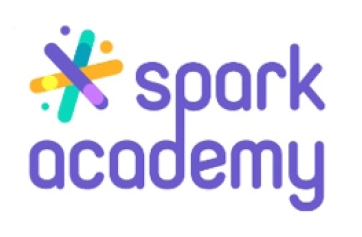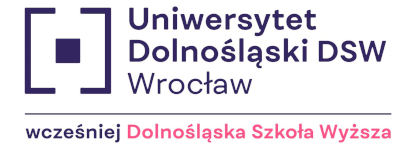Teaching Laboratory - A Transformative Instruction Programme for Upper Primary School

Working together for a green,
competitive and inclusive Europe
Program: Education IV (MF EOG 2014-2021)
Project: Teaching Laboratory - A Transformative Instruction Programme for Upper Primary School
Partners: 0stfold University College, SPARK Academy Foundation
Project Duration: 01.05.2022 - 30.04.2024
Project Budget: 192 534 EUR
The "Laboratory of Didactics - A Transformative Instruction Programme for Upper Primary School" project receives 192 534 euros from Iceland, Liechtenstein and Norway under the EEA Funds.
Publication
The publication presents an innovative approach to teaching at Spark Academy Elementary School in Poznań. The Spark idea of teaching is to move away from classroom teaching to project-based teaching (SMOK, Big Idea Day - Chapters XX) and problem-based teaching (subject classes, faculties - Chapters XX). The publication also presents the research approach used when working with teachers (Chapter 14).
The authors are not concerned with criticizing the status quo for the sake of convincing readers of the need for radical changes in education or cautioning them against introducing superficial ones, because they “package” differently what was/is the essence of the (existing) school culture. Referring - in the theoretical and methodological layer - to post-critical pedagogy, especially the concept of immanent ontology of teaching, and the third generation of the historical-cultural theory of activity (CHAT), they simply show the ideas, the way and the effects of the process of making a change in education: how much and what kind of involvement - of teachers, students, parents and researchers representing also foreign school and scientific centers - a rewarding, successful transformation of educational practice may require (from a review by Dr. Dorota B. Gołębniak).
PUBLIKATION FREE
Download

Partners

0stfold University College, Norway, offers a strong academic environment for teacher training and research. It collaborates with more than 140 schools and kindergartens across Norway. It has leading positions in Norway concerning online learning and enhancing teachers’ professional digital competence required in classrooms. By adopting the central premises of P. Galperin’s pedagogical theory, the Department researchers developed a model to design MOOCs and online environments to facilitate the development of students' conceptual understanding and their understanding of how to learn online. The suggested model can also be adopted in traditional education to enhance the learning and development of students as learners.

SPARK Academy Foundation, Poland, has operated an alternative elementary and high school since 2016. The elementary school has 157 students and 33 teachers. Their activities aim to accompany the student transitioning from a stage where they depend on adults to increasing independence and self-reliance. Independence from an early age needs practice, action, and experience adapted to the student’s developmental capabilities. Teachers are responsible for organizing learning, stimulating thinking, providing problems, monitoring, supporting independent exploration, and summarizing. The student actively seeks, hypothesizes, tests, makes mistakes and draws conclusions. Teachers work with innovative methods, such as interdisciplinary projects within the classroom, international curriculum (IPC), mixed-age learning (6-9; 10-12), entrepreneurship days, project days (a day off from class to do projects, develop passions and interests), and tutoring.
About the project
The project tested and expanded an innovative curriculum for grades 4-8 of primary school Spark Academy, integrating all forms of learning at school (lessons, extracurricular activities, interdisciplinary projects, tutoring, e-learning and students' own work). The program promotes an integrated view of learning, teaching and development. The goal is to move away from the dominance of classroom teaching and the transmission of content to education for the future, promoting self-reliance and student well-being, incorporating new technologies (ICT), developing creativity, communication, criticality and cooperation in school. They create conditions for the transformation of learning activities into student development.
Events
Conferences and workshops to summarize the project
March-April 2024
The project team disseminated the solutions developed in the project through conferences and workshops for teachers.
The first conference was held at the Rungego College building of the Poznań University of Life Sciences, and the workshop was held at the Spark Academy building. The event began with a lecture by Professor Irina Engeness on “Assessment for Learning - the historical development and the opportunities in the 21st Century.” Participants then attended workshops and discussion sessions. Conference program.
The second event was held on March 14, 2024 at the University of Lower Silesia DSW in Wrocław as an open conference (March 14) and a series of three workshops (April 3-10-24). Teachers were introduced to the principles of Problem Based Learning (PBL) in the classroom and designed a specific lesson in this approach. In PBL, we do not give students ready-made solutions, but initiate and reinforce their activity so that they (each other) learn and discover the knowledge and skills of the subject on their own. We start first with a problem task to engage students. Then through problem questions we direct active learning. Then, through dialogue and visualization, we support students in integrating newly acquired skills and knowledge. Conference program

Outbound writing workshop (portfolio II)
October 2023
A team of Spark Academy teachers met with researchers from DSW during a three-day workshop focused on the preparation of the Spark Academia Teaching Laboratory Manual, presenting a model of the school's work with examples of good practices showing the assumptions of holistic teaching for grades 4-8.

Workshop at Spark Academy
August 2023
Sławomir Krzychała and Beata Zamorska met with teachers at a two-day workshop, during which they worked on transformative teaching strategies not only for grades 4-8, but also developed a “bridge” of cooperation between teachers and children in grades 1-3 and 4-5 (as part of Learning and Trainig Mobility No. 3).

Research teams at Spark Academy (portfolio II)
February-October 2023
In this phase of the project, Spark Academy teachers tested new solutions developed
during the study trip to Norway. DSW researchers conducted workshops and consultations with teams of teachers. Solutions related to the organization of education, school life and the space of the school building were reworked. The author's concept of sparka inter-subject educational organization SMOK, including educational projects, was thoroughly developed. P. Gaplerin's problem-based learning method was implemented in subject teaching.

Study visit of Spark Academy teachers and DSW researchers to Norway
February 2023
Spark Academy teachers and Polish researchers visited four schools with different styles of organization and work. In each of them they participated in classes, meetings with students and teachers. It was an opportunity to establish direct contacts between Polish and Norwegian teachers along with ideas for further cooperation. In addition to visits to schools, teachers took part in workshops at Ostfold University College related to transformative learning (Learning and Trainig Mobility no 2)

Research teams at Spark Academy (Portfolio I)
October 2022 - January 2023
Teams of teachers conducted a survey of existing teaching practice during direct work with students in grades 4-8. Qualitative methods of data collection (video observations, mini-interviews with students, student work, dense descriptions) were used. The collected materials were prepared and described in accordance with the guidelines of the Teacher-Researcher Handbook. In addition, DSW researchers conducted consultations with each subject team.

Workshop at Spark Academy
October 2022
Spark Academy teachers participated in a workshop where they were introduced to the methodology of the didactics laboratory, P. Galperin's concept of learning - teaching, and began working with the Teacher-Researcher Outline. The five-day presence of Norwegian and Polish researchers at the school gave teachers an opportunity for consultations, discussions and exchange of experiences (Learning and Trainig Mobility no. 1).
Teacher-researcher's Conspectus (link)

Project team meeting at Ostfold University College
Faculty of Teacher Education and Languages
June 2022.
Ewa Raba and Małgorzata Moszyk (Spark Academy) and Sławomir Krzychała and Beata Zamorska (DSW) met with Norwegian researchers Irina Engennes, Lin E. Sandhaugh Rmberg, Sigrun Staal Hafstad to develop a detailed program of work of the didactics laboratory, techniques and research tools that teachers will be able to use at different stages of the project.

Contact us
Project Manager
Professor Sławomir Krzychała
email: slawomir.krzychala@dsw.edu.pl
Project Management Office
55 Strzegomska Street
53-611 Wrocław, Poland
email: biuro.projektow@dsw.edu.pl

 Jesteś w dobrym miejscu! Zmieniliśmy nazwę na Uniwersytet Dolnośląski DSW!
Jesteś w dobrym miejscu! Zmieniliśmy nazwę na Uniwersytet Dolnośląski DSW! 
